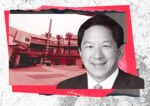 “I've got a blank check. Make it happen:” Hamptons brokers on the great coronavirus migration
“I've got a blank check. Make it happen:” Hamptons brokers on the great coronavirus migration
Trending
Hamptons market so tight, even landlords seek rentals
Like the Fourth of July, but cold and with no restaurants open
In mid-March, as the coronavirus and work-from-home policies swept through New York City, an unprecedented wave of urbanites descended on the Hamptons. Stories of blank checks and same-day move-ins abounded as renters and buyers fled the boroughs.
A month later, as Hamptons brokers settle into a new normal, The Real Deal’s E.B. Solomont spoke with Bespoke Real Estate co-owner and co-founder Cody Vichinsky, Corcoran Group broker Susan Breitenbach, and Town and Country Hamptons CEO Judi Desiderio to discuss how business has changed and what the pandemic means for the future of the market.
“It’s a whole other way of doing business and working, and it’s very strange,” Breitenbach said. “It’s as busy as it is on the Fourth of July, but it’s a little colder and no restaurants are open.”
Demand has surged so dramatically that even the extremely wealthy are finding themselves with limited options. “If you look at the absorption now, versus last year, we’re in a whole different ball park,” Vichinsky said. “We have a very saturated market, there’s not a lot of optionality — people are definitely fitting round pegs in square holes in the process.”
Read more
 “I've got a blank check. Make it happen:” Hamptons brokers on the great coronavirus migration
“I've got a blank check. Make it happen:” Hamptons brokers on the great coronavirus migration
 The 1% are shelling out $400K on Hamptons rentals as NYC shuts down
The 1% are shelling out $400K on Hamptons rentals as NYC shuts down
 Hamptons hermits' spending spree strains sanitation crews
Hamptons hermits' spending spree strains sanitation crews
Another factor limiting supply is homeowners who have decided to stay in their properties, rather than rent them out. Some landlords have tried to back out of summer leases, leading to serious disputes. “Sometimes you find you’re looking for a rental for the landlord now,” Breitenbach said.
The Covid-19 epidemic has led to a reversal of the trend of Airbnb and other short-term rental services picking up significant market share.
“Before C-19, we were being dominated by short-term rentals,” Desiderio said. “Once the virus hit, people no longer wanted anybody in their house for a week or two — both landlords and tenants totally pumped the brakes, and we went back to ‘I want the full season, from March or April through September’ or ‘I want it year-round.’”
“It was kind of nice to go back to full-season rentals, and no longer the short-term, immediate-gratification, ‘let’s have a party for two weeks,’” she added.
Beyond the move from short- to long-term rentals, the crisis may also be pushing some renters to consider buying.
“For a lot of people, the rental process is an arduous undertaking — you’re moving into someone else’s home. It’s not like you’re checking into the Four Seasons,” Vichinsky said. “I think for a lot of folks that are looking long term are thinking to themselves, ‘Who knows what this is going to look like in a year or two years?’ So the psychology is open to looking at an acquisition as well as a rental.”
Fear of infection has complicated the process of showing homes, but brokers have continued to find ways to make deals happen.
“I’ll sit in my car while you walk around the property, and then you put on your hazmat suit and take your shoes off at the door, and I’ll open every door and drawer — don’t touch anything!” Desiderio said, describing a typical showing nowadays. “Believe it or not, sales are happening, and rentals are happening without them even walking around the property. People feel the need to take care of this now.”
Breitenbach and Vichinsky recalled a showing they participated in on Easter Sunday. The seller, represented by Breitenbach, had made videos of the property, while the buyer, represented by Vichinsky, was in Florida. The brokers met at the property and conducted a virtual showing — all while social distancing — and had a signed contract a few weeks later.
Looking forward, the brokers were hopeful that the recent surge in interest could lead more homebuyers to view the Hamptons as a year-round destination, although much remains uncertain.
“I think urban real estate markets are not going to return to normal for the foreseeable future, but luxury markets, small-batch destinations like Palm Beach, Aspen, and Malibu will thrive,” Vichinsky said.
“New York City and other urban markets are an entirely different, complex conversation.”




